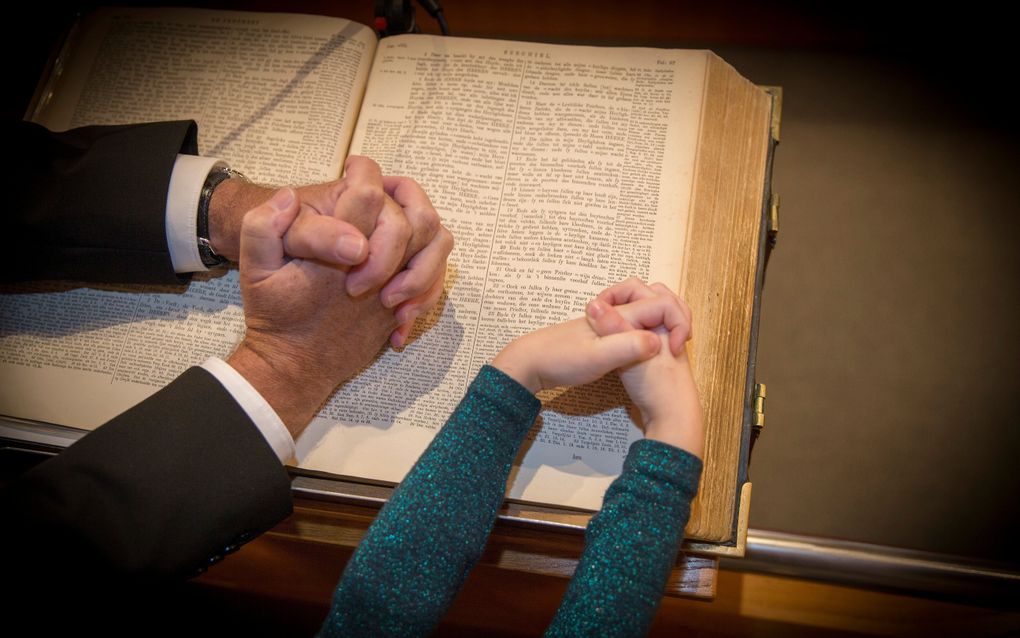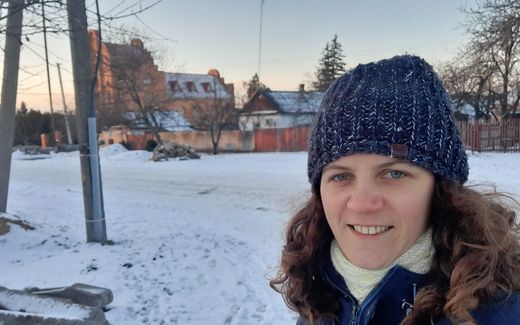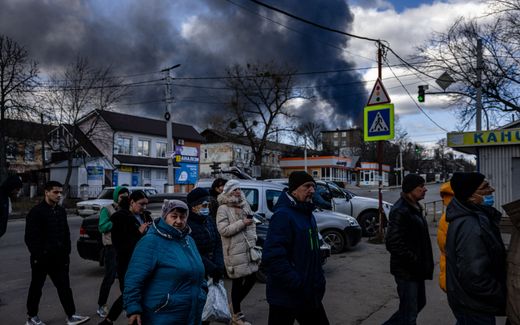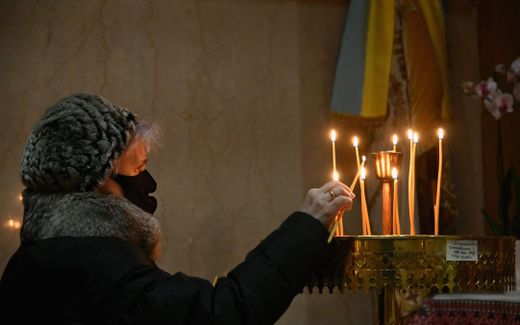Feel free to pray in wartime, but do not mention names
05-03-2022
Opinion
Dr. J. van Eck, former army chaplain

Photo RD, Henk Visscher
Opinion
“Would you pray in the pulpit for Ukraine’s victory? Or for the downfall of Putin and his clique?” “No, not so obvious” was my first response when I was asked this. However, I could not say why. The person who asked me forced me to think about it.
The apostle Paul wants the ministers of the Gospel to pray “for kings and all who are in high positions” (1 Timothy 2:1-2). That prayer is addressed to God, but it is also prayed for the believers.
It reminds them that there is a heavenly throne above the earthly thrones. A throne on which sits the Judge of heaven and earth, who will pass judgement upon us humans that is both merciful and just. Such a prayer is a political “Lift your hearts to God”, which lifts us above the earthly. Before that heavenly Judge, we stand as we pray for the mighty of the earth even when we see those powerful waging war.
To realise that makes you modest in the pronouncement of judgements because they can never be more than human judgements that are fallible and never absolute. After all, the final judgement belongs to the Supreme Judge.
That Judge is also Ruler, the Bible teaches. That makes you modest as well. For example, in praying for the success of a man-made strategy. As if we want to foretell the Ruler of the universe where the world must go.
Aggressor
Does this mean that we should only ask for general things like peace or comfort and help for those suffering from the war? When I pray for “repent of the aggressor”, I have indeed expressed judgement. And when I pray for courage and perseverance for the leader of Ukraine, I express a connection with a man who stands for his people under circumstances that would make anyone desperate. And though I have no more than a human judgement as to who has justice on his side, yet I hope that justice as I see it will prevail. And in prayer, I dare to ask for that too – but always in the knowledge that this is justice as I see it and that God will make the final judgement.
I can imagine that with increasing violence, my prayer will become fiercer and that things will pass my lips that I am not thinking about right now. There are many things in the Psalms that I have never prayed from the pulpit. Prayers for justice and vengeance and, in the worst case, for the destruction of the enemy.
This is sometimes critically discussed – partly from the Christian side – as if we Christians are past this stage. “Whoever has ever had to flee and experience the destruction of his city will understand the sentiment of the psalmist,” says a Jewish commentary on Psalm 137, which prays for the downfall of Babylon and its inhabitants (A. Cohen, in the ”Soncino Books of the Bible”). It just depends on what you’re experiencing.
A quiet and peaceful life
Standing before God’s face, we can ask for anything that prompts us to desire justice and compassion for people. For the right to prevail, but also that actions to help people may succeed. That the world realises its responsibility, that diplomats may find the right word. That the aggressor repents, but if we see him continue to shed blood, perhaps he may also be eliminated. Anything that people can pray for, that they may “live a quiet and peaceful life,” as Paul says (1 Timothy 2:1). War makes us realise what a great good that is.
As important as Paul considers prayer for the high-ranking, you do not hear him mention the names of emperors and governors. Even in the fiercest psalms, you do not hear the names of the enemies against whom prayers are made. Personally, that makes me hesitant to mention names while praying for the authorities. When I pray for “repentance for the aggressor,” people know for whom I am praying. However, I prefer not to call him by name.
I also prefer not to mention the names of ministers and administrators in ‘ordinary’ prayers for the government. Not even when I ask whether everything may come out in cases of “unprecedented injustice”. Who am I to bring anyone by name before the Supreme Judge? Because I stand before Him when I stand in the pulpit.
Consolation
Finally, there is also the consolation in the heart’s elevation to God. The morning I heard of the Russian invasion, I read the song by Dirk Raphaëlsz Camphuysen:
I hear the trumpets sound,
the enemy is near. I see the harnesses shine
and no one is near.
(…)
There is no help available
available than from God,
From God, who the world’s lands
has under his command,
of God, who heavens lights
has under His domain,
and who founded it before
man’s eye saw it.
(Original in Dutch: Ik hoor trompetten klinken.)
The heart, distressed by the rumour of war, rises above its fear to the Creator of heaven and earth. And to Christ, His Son, who laid down His life for the world and who will one day make judgement. There, our hearts find refuge above a frightening world.
Related Articles






